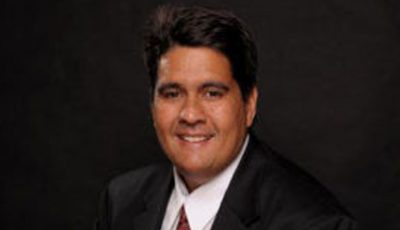englisCHe
Deutsch for “English” is “englishche” like, Der englische Patient of the “mad cow and the Englishman” story without beef in the movie, the English Patient. Products made in England are labeled Englische produkte. I latch on the word “englische” in my oral English pedagogy in China, accenting the CH at the end to play with the phrase “with Chinese characteristics” adopted to describe China’s socialism.
The Epoch Times, a widely disseminated tabloid in Canada and other countries, started with a Chinese edition, issuing an English version in 2004, and has been anti-CCP since 2000. This is understandable as the egalitarian direction of the communists has strong opposition from those who are influenced by the cult of personal charisma, presently strong in the Jesus idolatry of the U.S. Midwest laid out in Hong Kong (I saw enough of this since I made my first trip to Kowloon in ‘65), and Shanghai where a class society, not unlike that of England, is topped by a rich upper class living the good life while the majority are poor and exploited.
Li Hongzhi of Falun Gong was a charismatic leader in northeast China who promoted Dharmic practices of motion meditation at the same time as the qigong craze hit the West, creating a massive following that threatened the socialist aspirations of the CCP especially when hordes of the membership showed up in Beijing to demand recognition as a religious minority. The CCP at first welcomed the ethical direction of the movement but its reliance on numbers and charisma moved Dalian mayor of Bo Xilai to clamp his hammer and sickle on them.
Falun Gong was remarkable in not claiming fees for its teachings, but then fell into the Chinese propensity for identifying lineage to well-known teachers and teachings, and before it was made obvious, charisma turned founder Li Hongzhi into a power of uncommon and super proportions.
Ironically, the founder created the movement from the U.S., condemned by the CCP in 1999 for the promotion of a personality cult then discouraged after the excesses of Mao’s charisma manifest in the Cultural Revolution. Deng Xiaoping carefully skirted the temptation by pulling strings from the back. The Politburo has been sensitive to any “charisma” direction ever since.
Equally ironic, Bo Xilai, the nemesis of Falun Gong in Liaoning, south of Li Hongzhi’s Jilin province where the Falun Gong first flourished, was criticized for being a Mao-like mayor of Chongqing, relieved of his office when his deputy ran to the U.S. Consulate for fear of life, revealing that Bo’s wife murdered a British national and her husband tried to cover up the crime. The statuesque Bo Xilai was un-mayor’d, stripped of Politburo membership, indicted and found guilty of abuse of power while in office.
“Censorship” in China is the raison d’etre for The Epoch Times. Connected to Falun Gong, the tone of its editorial policies is understandable. I brook no objections to its qigong practices; for many seeking political asylum in the West, membership in the Falun Gong is a plus. However, a couple I knew on Saipan were “convenient” members, aka Falun Dafa, but they derived their living promoting, distributing, and profiting from methamphetamines. They were adherents by convenience.
In my vocab, “englisCHE” is China’s attempt to make English familiarity a part of its social architecture, aggressively began in the Beijing 2008 Olympics when signage in places where games were held like Shenyang and Dalian sprouted, albeit often an awkward translation, sometimes sounding funny to the Chicago ear. The sign “No occupying while stabling” in the train means that the toilet cannot be used while the train is in the station. (“Stable the horse,” “station the train,” get it?)
English, I think, has been taught the same way Chinese students are taught their Zhonghua characters, i.e., a reliance on seeing words and defining their meaning in abstract terms, figured on the context of its calligraphic use, the printed form of writing. English is, however, phonetic so reading and writing are only as useful as one has reasonable familiarity of what is heard and spoken. Normally, Chinese students are admired for their calligraphy, not their speaking.
BTW, this is not limited to Chinese schooling. All around the world, book learning is the mode of knowing at the expense of what is heard and spoken. English analyzes what is written, like the way students decipher Chinese characters, but in English, the nuances that defines context are expressed in body language and tone.
If the Epoch Times promotes the royal English of London and Victoria island, my englisCHe pedagogy favors the non-charismatic bland version from Kowloon, Pu Xi (Shanghai), Chongqing, and yes, Shenyang, with unapologetic Chinese characteristic. Spoken English remains a difficult skill in many circles, and students are trained more to pass Cambridge/Princeton English tests than learn to hear and speak the language of Hong Kong and Singapore.
That’s what my englisCHe pedagogy is, my raison d’etre for holding on to my China residency.



























